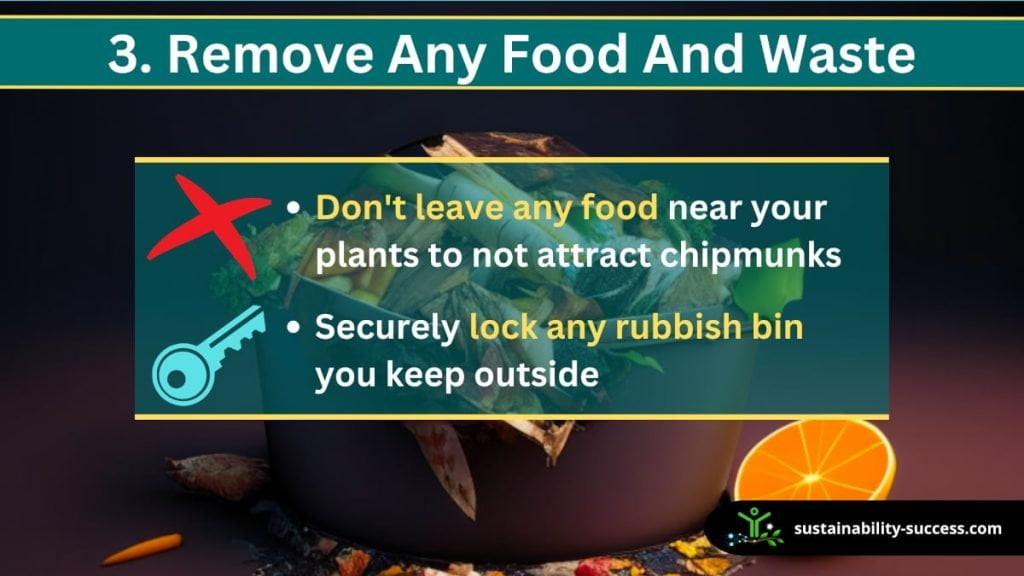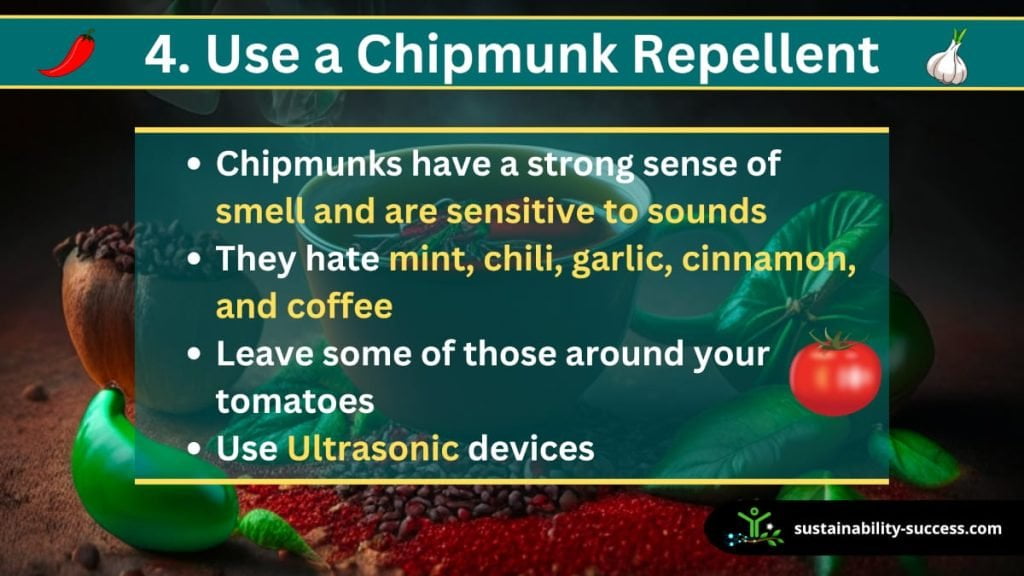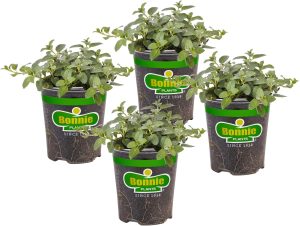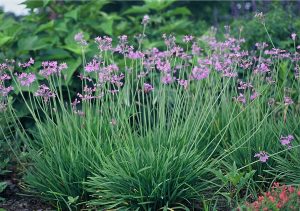So you’ve just found several half-eaten tomatoes in your garden. My dear gardening friends, in my experience, this is most likely the work of a pesky critter! But which one? Could it be a chipmunk? Do chipmunks eat tomatoes?
Chipmunks are omnivorous creatures that have been known to enjoy a variety of foods, including tomatoes. They often take a few bites of several ripe tomatoes off the vine, but will occasionally consume the entire fruit. In addition to tomatoes, they also have an affinity for cucumbers, peas, and beans. Chipmunks are known to eat green tomatoes as well when thirst strikes. In summary, chipmunks can and do eat tomatoes along with other plant-based food items.
Can chipmunks eat tomatoes? Unfortunately, yes. You’re certainly not the only one who enjoys tomatoes, and you may have taken a look at them only to find that some of them have been partially or completely eaten.
Oh chipmunks, those cheeky little rascals. Not only do they raid your bird feeders, but they’ll also munch on your ripe veggies, especially tomatoes! And it doesn’t stop there. These furry little vandals are notorious for digging holes, damaging your garden, and even causing damage to your house. And if they discover you have a garden with food available, they’ll create their home right next to yours! So good luck trying to keep them away, folks. It’s easier said than done.
But fear not, I’m here to help! Keep reading to find out how you can protect your garden and your tomatoes, while not doing any harm to the chipmunks in the process.
Do chipmunks eat tomatoes on the vine?

Do chipmunks eat tomato plants?
Yes, chipmunks can eat tomatoes off the plant, and they may not even stop there. Chipmunks can even eat tomato plants, including leaves, stems, and fruit!
Before you can figure out what preventative measures to put in place, you should make sure that it really is chipmunks that are eating your tomatoes off the vine.
The culprits could also be various other animals, such as other small mammals, deer, birds or a variety of different insects, which all have a fondness for tomatoes. Take a look at the following other animals that eat tomatoes and keep in mind these clues:
- Insects love tomatoes too. You might notice small nibbles or holes in the leaves of the plant, which is a sure sign of an insect being responsible. As for the fruit itself, obviously, it will take a while for insects to eat an entire tomato, so it will probably only have surface damage, or the insects may have burrowed into it.
- Deer are of course much larger animals and are likely to have damaged your garden more and eaten more of your plants than a smaller animal could have managed. Do deer eat tomatoes? Deers are also likely to have eaten some leaves as well as your tomatoes and other fruits.
- Birds are also eating tomatoes. However, it is generally easier to recognize a tomato that has been eaten by a bird as they leave clear marks with its beak.
- There’s one clue that all mammals can leave behind: Footprints. Try checking online for what the footprints from animals in your area look like, and then take a look for any footprints in the soil in your garden. Though it may be hard to tell which animal made them if you find one with a clear shape it can confirm your suspicions right away. Chipmunks have long, skinny toes, with 4 on their front feet and 5 on their larger back feet. Other recognizable footprints are badger footprints, which look like miniature bear tracks, and deer tracks, which can vary but are always recognizable, as deer hooves will leave two indentations in the ground, often heart-shaped.

One way to tell if it’s a chipmunk eating your tomatoes is by what kind of damage the plant has sustained.
Chipmunks will often take small bites out of multiple tomatoes, wastefully ruining a bunch of them, though they might sometimes eat the whole fruit as well. They will prefer to eat ripe tomatoes, but they might eat green ones occasionally as well, especially if they’re thirsty.
Chipmunks also love to dig small holes in the ground to look for seeds and other food, and you might also find plants or other objects that have been damaged by chewing, as chipmunks need to chew constantly since their teeth never stop growing. However, other animals like rats and rabbits also have to chew things for the same reason.
Ultimately, the best way to confirm what’s been invading your garden is by catching it in the act, so keep a watchful eye out and see if you spot any chipmunks.
If it’s been a while and you haven’t seen a chipmunk or any other animal go near your tomatoes during the day, you may be dealing with a nocturnal animal. Hedgehogs and badgers may be responsible, as they do eat plants despite their diets being primarily insects and other small animals.
How to protect tomatoes from chipmunks? 7 ways
So how can you keep chipmunks out of your garden and away from tomatoes?
First, you should think about what you’re willing to do to keep them away. In my case, I really don’t want to hurt the chipmunks, but at the same time, they should get out of my garden.
Many people are also asking what squirrels and chipmunks eat. Well, the list of their food is really long, so the tips I’m going to give you can help to save much more than just the tomatoes in your garden!
So, here are 7 effective ways to protect your garden without hurting the chipmunks!
1 – Get a dog or a cat

One tried-and-true approach is to welcome some furry and feathery friends to your space. Seriously, try to invite foxes or birds of prey to check out your garden and flex their predator’s muscles. If that’s too complicated, just get yourself a furry companion like a cat or dog to stand guard.
But here’s the catch: the downside to this is that unfortunately, some unfortunate chipmunks might suffer injury or death. Not to mention, let’s face it: a kitty or pooch can only do so much in terms of protection.
That being said, the chipmunks will most likely steer clear of your garden, considering the high-risk situation it presents. So if you’re willing to take on the responsibility of inviting the predators over or adopting a pet, this could be a decent option to keep those pesky rodents at bay.

Dogs love to chase chipmunks around, and even if they may never catch one, it still causes a lot of stress for the chipmunks and forces them to waste their energy running away, so they have to look for more food to survive.
If you want to keep chipmunks away from your plants but aren’t willing to accept a small chance that they may get hurt, then keep reading and try out the following 100% harmless methods instead.
2 – Create Barriers for the chipmunks

Putting a physical barrier between wild animals and your crops is an obvious, but usually very effective, solution. You could make use of a mesh such as chicken wire, hardware cloth or bird netting. Here are the best chipmunk-proof options:
Whatever material you use, remember that chipmunks are obviously great climbers, and can use nearby trees to get onto things they would have trouble climbing, so you might also have to make a roof over the plants to stop them from getting in that way.
You could use a flimsier material that doesn’t support the chipmunk’s weight as they climb it, but keep in mind they might also try to bite through it.
You should also remember that the gaps in the barrier have to be small enough that a chipmunk can’t squeeze through them, and it will need to be buried far enough that they can’t dig a hole underneath.

Keep in mind that even if you had the perfect material for keeping them out, chipmunks are very resourceful and will often still manage to find a way through defenses like this.
It might take some extra time and effort to find out how exactly they’re getting in and what the best way to stop them is. On the other hand, with some luck, the chipmunks might see even an imperfect barrier as too much effort for what’s inside.
3 – Remove Any Food And Waste

Leaving any kind of food near your plants is a sure way to attract chipmunks and other animals to them.
Take a good look around your garden and near your plants to make sure nothing tasty has fallen down beneath them, and make sure any rubbish bins outside are securely closed and that nothing has fallen out.
You should also keep an eye on any bird feeders you have out, to make sure no food is falling to the ground and attracting them to the area, or that the chipmunks are able to access what’s inside. I would also suggest using chipmunk-proof bird feeders like the one below to avoid attracting chipmunks in your garden.
If the food is disappearing faster than it should be, a chipmunk is probably the culprit.
4 – Use a chipmunk repellent

Chipmunks have a very strong sense of smell, so it may be very effective to use some kind of repellent that chipmunks hate to go near. For example, they hate the smell of mint, so growing mint plants in your garden could deter them from entering.
Here’s a selection of the best hand-picked chipmunk repellents:
They also dislike the scent of cinnamon, so sprinkling some ground cinnamon near your plants should hopefully deter them.
They also hate the scent of anything spicy, like chili or pepper.
If you own a cat or a dog, leaving some of their hair lying on the ground in your garden could also help to keep chipmunks away.
There are many other substances that chipmunks hate the smell of, and you could try making some of these into a spray that you can spray around your garden, though you should make sure that the substances you use won’t be harmful to your plants.
You could also buy sprays to repel chipmunks, and if you do so it should be particularly effective to buy a spray that uses the scent of a predator.
Keep in mind that all of these scents will have to be reapplied once the rain has washed them away!
Did you know that coffee can also be used as a repellent? Leftover coffee grounds are often composted, but you can also sprinkle some around your plants.
Many animals dislike the potent smell, likely because of the caffeine. It can repel chipmunks and other small mammals, including cats, as well as insects like snails and ants.
As an added bonus, coffee grounds will not only keep animals away but will also add more nutrients to the soil and provide a food source for worms, whose activity also enriches the soil.
5 – Companion Planting for your tomatoes

As mentioned above, planting mint or peppermint in your garden could help to deter chipmunks, as they hate the smell.
The Anti-Squirrel Plants
The same strategy can be taken by planting many other kinds of plants near your tomatoes. Here are some effective examples:
- Flowers such as daffodils, Geraniums, Hyacinths, Lily of the Valley or Galanthus are all known to be disliked by chipmunks due to their strong scent. If you plant any of these in your garden, they’re likely to think twice before entering. As a bonus, these flowers will all make your garden look colorful and beautiful.
- Garlic is a plant that chipmunks, as well as other small animals, insects, and even deer, despise due to its very strong smell and flavor. Garlic even deters fungus from growing near it, and it needs only a small amount of room in your garden to grow. This all makes it a fantastic companion for your tomato plants.
- Onions and chives are two other great options, for similar reasons to garlic. They deter chipmunks and other pests and fungi due to their strong smell and taste and are generally friendly when growing next to other plants, including tomato plants. And of course, when they’re done growing they will be just as delicious as the tomatoes they helped to protect.

You should be careful and do your research if you plant something right next to your tomato plants, as some plants can damage and/or steal nutrients from them, or take up so much room in the soil that the tomato’s roots cannot fully grow.
You should also be careful that plants near your tomatoes do not grow so tall that they block out the sun and prevent the tomato plants from getting enough sunlight.
6 – Scare the chipmunks

Giving the chipmunks a reason not to come to your garden is another useful strategy. For instance, you could try making or playing sounds in your garden, such as noises from other animals, wind chimes, or even just leaving a radio playing.
If the sound playing is from a predator, such as a bird of prey, chipmunks will have even more reasons to avoid going near your garden.
You could also purchase or create a decoy of a predator, such as an owl or other bird of prey, or a fake predator on the ground, such as a snake. Chipmunks are terrified of predators like this and will certainly avoid the area no matter how attractive your garden is to them.
Here’s the best decoy predator to scare chipmunks and birds away from your tomatoes:
However, they are unlikely to be fooled by this for very long once they notice the decoy never moves and will go right back to eating your food when they realize there isn’t actually any threat.
You could try relocating the decoy and the source of the sound every so often to trick them into thinking the predator is moving around.
These decoys will also work well on other small mammals and on birds, making them worthwhile to try even if you’re not yet sure what’s coming into your garden.
7 – Leave some water for the chipmunks

Do chipmunks like tomatoes? If they have other food and another source of water, chipmunks would rather prefer not to eat tomatoes. This is because tomatoes are nightshade vegetables, which are not so good for squirrels and chipmunks.
There may be a reason that the nearby chipmunks are looking for tomatoes, besides them just being tasty.
Tomatoes are about 95% water, which makes them extremely valuable to any animals who are having trouble getting water from elsewhere, especially during the hot summer months!
You could try leaving a container of water outside, away from your plants but where thirsty chipmunks can easily find and drink from it.
You may also be wondering: do chipmunks eat green tomatoes? Yes, they can if they are thirsty!
Many people growing tomatoes tried to just leave some water for the chipmunks and it worked for them. Bear in mind that this trick will work only if the chipmunks are eating your tomatoes because they are thirsty. This is highly likely especially if it is quite hot and you find a lot of tomatoes that have been just partially bitten.
This will give any nearby chipmunks easy access to clean water, which in combination with other protections made against them, will hopefully make your tomatoes seem less worth the effort and risk to them.
You could also try to leave food and treats out in the same place, or even plant some extra tomatoes away from the rest so that you won’t mind the chipmunks eating. This may keep them away from the rest of your plants, but there is also the danger that leaving food out will attract even more chipmunks and other animals to your garden, so be cautious and see what happens.
Do chipmunks eat tomatoes at night?

Chipmunks are not active during the night. If your tomatoes were eaten during the night, the culprit is some other animal that is active in the dark, like for example a raccoon.
However, before reaching any conclusion, you should be sure that the damage happened overnight. To do so, you should check your tomatoes as soon as it gets dark and then again before sunrise.
If you find eaten tomatoes before sunrise, then ut can’t be chipmunks, because they would just be sleeping when is dark.
Conclusion
Whether it’s done to help sustainability and save the environment, by having a more sustainable lifestyle, save money or for its health benefits, it’s rapidly becoming more common to be growing your own food at home.
Homegrown food is one of the amazing examples of sustainability, helping to reduce the emissions caused by the transport of food and reducing waste.
Home-grown food is nutritious, tastes amazing, and gives you a feeling of satisfaction that you don’t get from buying vegetables at a store. Tomatoes are a fantastic option for growing food in your own garden and improving self-sustainability, especially if you’re just starting out. They’re easy to grow and are tasty and nutritious.
The answer to the common question “do chipmunks eat tomatoes?” is that, unfortunately, chipmunks may eat tomatoes, especially if they are thirsty and you may have to deter them from entering your garden. Moreover, squirrels will eat tomatoes too!
Here’s a summary of the 7 best methods to keep chipmunks out of your garden without hurting them:
- Get a dog or a cat
- Create Barriers for the chipmunks
- Remove Any Food And Waste
- Use a chipmunk repellent
- Companion Planting for your tomatoes
- Scare the chipmunks
- Leave some water for the chipmunks
You may need to use a combination of these methods to fully protect your garden, so try them all out and see what’s most effective for keeping the chipmunks out.
With enough persistence and a little bit of luck, you’ll surely be able to enjoy your tomatoes without any of them going missing when you aren’t looking!











